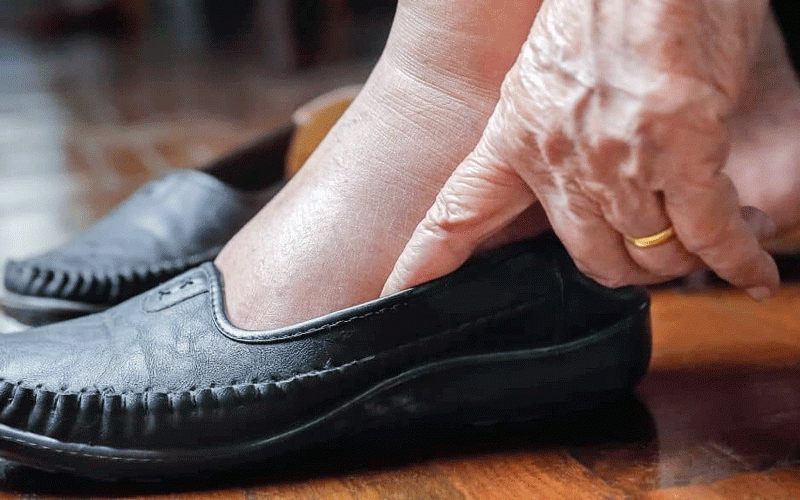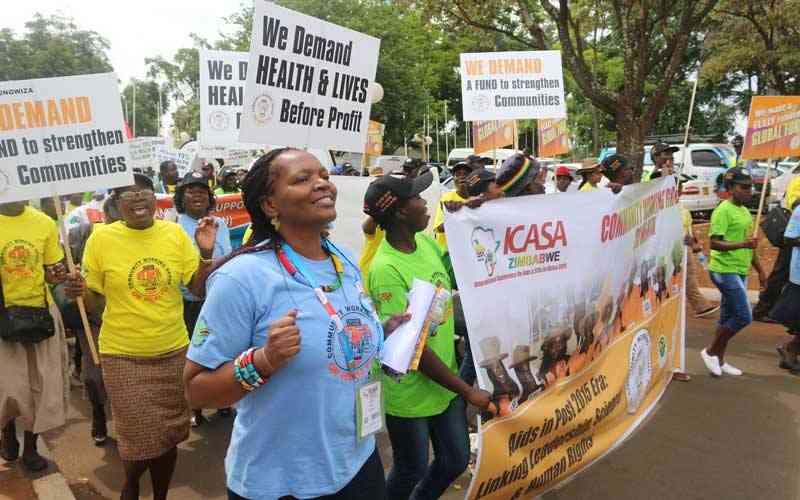
Her doctor has just confirmed her worst fears, that she is about to begin the most difficult part of her life.Sibanda (39) says despite undergoing free cervical cancer screening at the United Bulawayo Hospital three months ago, she has not made any progress in terms of seeking treatment as she does not have the money.
“My doctor transferred me to Mpilo Hospital where he said I will have to pay US$4 000 to receive treatment,” she said. “Where can an unemployed widow like me get that much money?
“My late husband was a council general hand and my two sons are unemployed.“I have now resorted to seeking help from a faith healer who prays for me daily and I can only hope that my illness will go away some day.” The month of September came and went without Sibanda minding that it was the cancer month.
“I heard it was the month for cancer but why should I care when I am dying and there is no help in sight,” she said. The recent National Conference on Cancer Prevention and Control showed that there could be more patients across the country who found no reason to commemorate the cancer month given the many problems they face when seeking treatment.Douglas Mombeshora, the De-puty Health and Child Welfare minister told delegates at a recent cancer conference in Harare that patients are paying between US$2 500 and US$3 000 for a treatment cycle.
Mombeshora said around 7 000 cancer cases were recorded each year and the epidemic was on the increase due to HIV-related cancers such as Kaposi’s Sarcoma.
Delegates to the national conference recommended that policy makers should scale up cancer screening services. There were also suggestions that awareness on cancer should be improved and the package should include a school curriculum which encourages teenage girls to do self-examination for breast cancer.
Women were encouraged to go for Human Papillomavirus (HPV) tests along with the Pap smear test in order to increase early detection of the HPV which causes cervical cancer.
There were also suggestions that the two national cancer centres should be allocated more resources for an improved quality of care for cancer patients.
- Chamisa under fire over US$120K donation
- Mavhunga puts DeMbare into Chibuku quarterfinals
- Pension funds bet on Cabora Bassa oilfields
- Councils defy govt fire tender directive
Keep Reading
The most common cancers among black Zimbabweans include Kaposi’s Sarcoma, cervical cancer, breast cancer and prostate cancer.
Cancer Association of Zimbabwe knowledge manager Tafadzwa Chigariro said breakdown of equipment at the two national cancer centres at Mpilo and Parirenyatwa hospitals sometimes sees patients going for months without being attended to.
“Sometimes some patients would have travelled for long distances to get assistance only to be told that the machines are not working,” Chigariro said. “We also feel that government should subsidise treatment costs because they rank among the most expensive treatments.
“Some of the money from sin taxes (tobacco and alcohol taxes) should be channelled towards cancer treatment and prevention programmes.”











